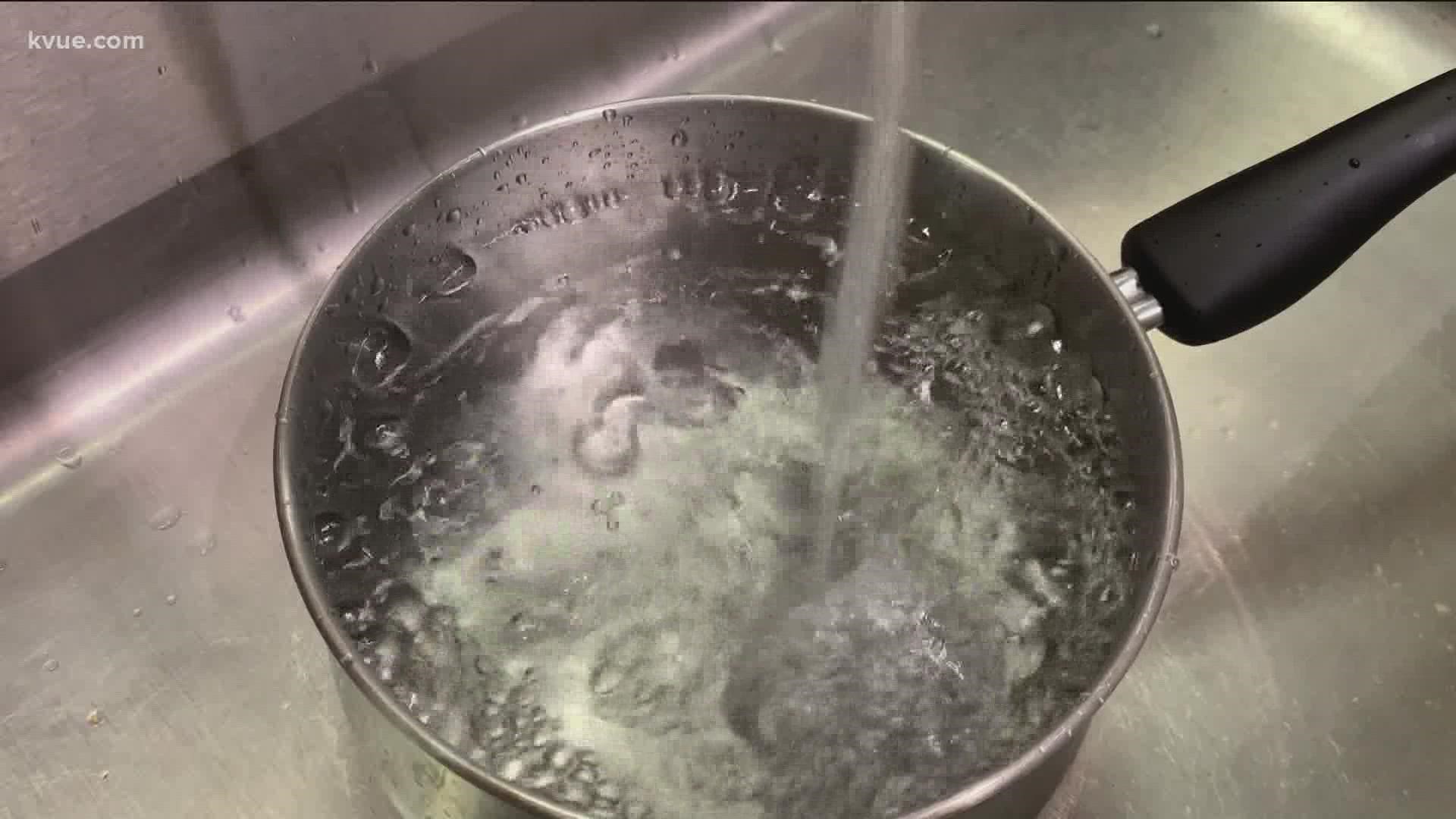AUSTIN, Texas — Austin remains under a citywide boil water notice Monday morning – the second notice in less than a year.
The situation is frustrating a lot of Austin residents, including Mayor Steve Adler. The mayor joined KVUE Daybreak to discuss the notice and what's being done to resolve the issue.
Below is an abridged transcript of the interview.
KVUE's Rob Evans: Last year, the boil water notice was because of the winter storms. This one happened just days after this winter storm, but we're told this was human error. What exactly happened?
Austin Mayor Steve Adler: "We need more information from the manager and the director of the water department, but what they're telling us and the public is that it was human operator error, most probably. They're still doing their investigation, but that's what it's looking like."
Evans: It sounds like they're talking about the turbidity, which is just the clarity of the water. So, it sounds like it's a clarity issue, not a contaminant issue. So it's not like chemicals that are in the water. Is that what you got from them [Austin Water]? That it's just a murky water issue, not a dangerous water issue?
Adler: "I don't think it's a dangerous water issue. We're told that there's no real substantial risk to the public health. But I think that they, in the treatment process, what I'm understanding is they may have added more of something than they're supposed to add, which has left the water cloudy. And because it's cloudy, they can't do the final test that's necessary to be able to have the water go out to the public.
So, in the absence of being able to do that test, they have to work to lower that cloudiness so that they can run that test. That's what they're doing. The water plant is back up, I'm told, it's fully producing water. We just need to go through the tests now with TCEQ [Texas Commission on Environmental Quality], the State, so that they can open back up the system."
Evans: It's got to be incredibly frustrating for you, especially after so much preparation goes into this winter storm making sure we're OK, and then something like this happens, completely separate from the storm but a crisis nonetheless.
Adler: "Incredibly frustrating for everybody in this city, myself included. Here we did so well in this winter storm, we came through it pretty well. We got done what we needed to get done and then to have this happen yet again? Very frustrating."
Evans: It may be premature to ask this question, but are you guys thinking about options for the future to prevent this from happening again? Or is that something you have to work on in the future?
Adler: "I think, absolutely, you start thinking immediately about how to prevent this in the future. The response has been really good. We're taking a look at that. We gave out over 7,000 cases of water yesterday, over 6,000 gallons of water from the water delivery tankers that were out of the distribution sites. But we have to do a better job. In our city, we can't have our water system be going down like this."
Evans: Obviously, you guys did that fantastic job. But three days is fast. Austin Water says it expects to lift those tomorrow [Tuesday]. Do you expect it to be done that fast? Because it was more than twice as long [in the] previous times it went down.
Adler: "That's what they're telling us. And, in fact, the timing frame that they set up, they seem to be meeting. The plant is up and operating, they're taking the tests. But the last 24 hours is because they take the water, when they test it, they actually have to culture it. So there's a 24-hour period of time that you can't speed up to run that test. They're telling us that if everything goes the way that they anticipate, they should get the approvals by tomorrow afternoon, which is great.
We're working with the school districts, Austin and Del Valle, to make sure that they have necessary water supplies in the schools so that nothing impacts kids in class today and tomorrow. We're working with our partners in the community to have the five distribution centers. Go online and you can find them if you need them. So, we're doing everything we can. Nonetheless, [it's] frustrating."
Evans: Before we go, I want to end on a good note there. I want to talk about the success of this past winter storm's results, you know, different from last year, obviously. What areas shined and what areas need improvement?
Adler: "It was [a success]. The winter storm this year, unlike last year for lots of reasons, including that the weather event itself wasn't anywhere near as severe. But here we learned a lot of things from last time, and we put those things into place. We're working really well with community partners. We were able to get people that needed out, off the streets and into shelters. We had shelter and warming facilities that opened up quickly. We got communications out in multiple languages. We worked really well with community partners across the city, and we kept the systems up and operating and working really well.
We're going to analyze that activity the same way we analyze things when they don't go well – again, to keep making sure we always learn and always do better. But kudos to the community for taking care of one another and to the staff of the City and the County for getting us through that storm really well."
PEOPLE ARE ALSO READING:

